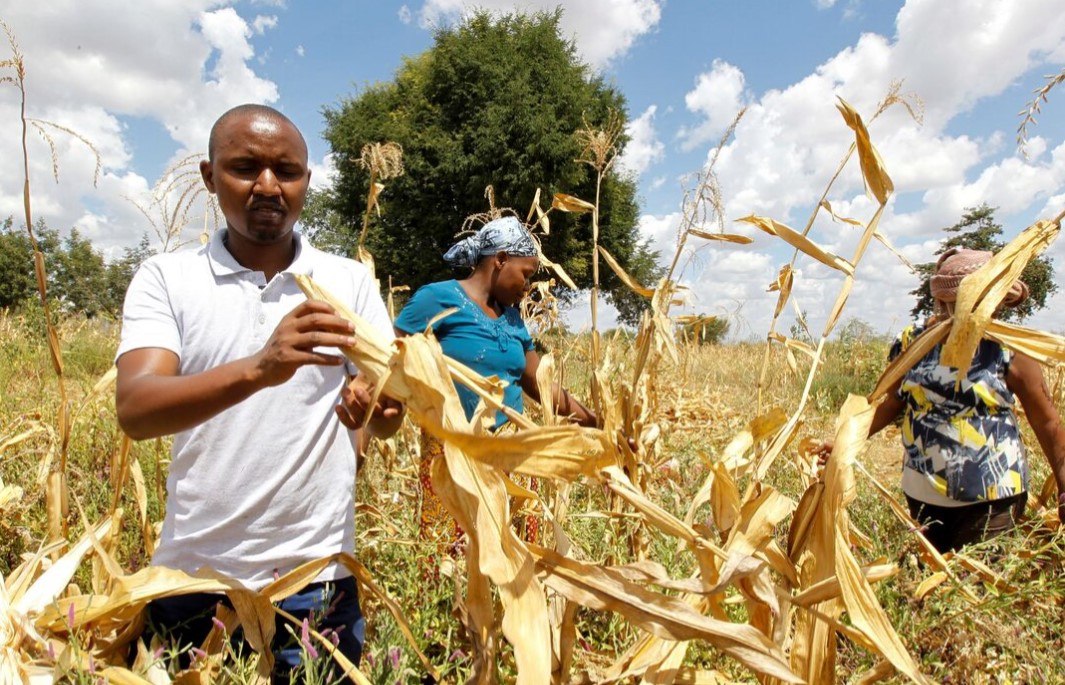Kenya wastes Sh72 billion worth of food annually, leaving millions hungry - report

According to the findings, Kenya loses up to 36 per cent of maize, 23 per cent of potatoes, 34 per cent of fish and as much as 56 per cent of fresh fruits before they reach consumers.
Kenya wastes food worth Sh72 billion every year, equivalent to nine million tonnes, even as nearly a quarter of the population struggles daily to secure enough to eat, a new report by the World Resources Institute (WRI) Africa has revealed.
The study, Food Loss and Waste in Maize, Potato, Fresh Fruits and Fish Value Chains in Kenya 2025, equates the annual waste to filling 500 million 18-tonne trucks. It is described as the most comprehensive analysis to date, mapping the scale, hotspots and drivers of food loss while outlining solutions to strengthen food security, farmer incomes and climate resilience.
More To Read
According to the findings, Kenya loses up to 36 per cent of maize, 23 per cent of potatoes, 34 per cent of fish and as much as 56 per cent of fresh fruits before they reach consumers. Among fruits, mangoes suffer the highest losses at between 17–56 per cent, followed by avocados at 15–35 per cent and bananas at 7–11 per cent.
The report further notes a critical data gap on food loss and waste in Kenya, stressing the need for standardised measurement systems. Without reliable data, it warns, meaningful targets cannot be set, interventions remain ineffective, and progress goes untracked.
Although the issue may seem distant to many Kenyans, the report notes that its effects are widely felt.
“Losses of staples like maize compromise national food security, inefficiencies in supply chains reduce business profits, and smallholder farmers lose vital income. For consumers, cutting food losses could mean cheaper maize flour, fresher fruits and fish, and more stable prices in local markets,” reads the report.
If Kenya succeeds in halving food loss and waste by 2030, the report estimates the country could feed an additional seven million people annually, inject Sh36 billion into the economy, and cut seven million tonnes of carbon emissions, directly supporting both food security and climate goals.
Globally, however, efforts to meet the UN Sustainable Development Goal (SDG) 12.3 of halving food waste and reducing food loss by 2030 remain off track.
To address the crisis, WRI proposes three urgent actions: building robust data systems to identify loss hotspots, scaling up proven technologies such as hermetic storage and cold chains, and accelerating the rollout of national and county policies with stronger cross-sector coordination.
“By providing reliable data, strengthening policies, mobilising finance, and fostering entrepreneurship, we are turning food loss and waste into food security, green jobs, and climate resilience,” Dr. Susan Chomba, Director of Vital Landscapes at WRI Africa, said.
With just five years remaining to deliver on SDG 12.3, the report stresses the urgency of consistent data collection, scaling proven solutions and enforcing clear policies. It argues that reducing food loss offers a “triple dividend”: feeding millions, saving billions and cutting emissions.
WRI, an independent research organisation, works to improve lives, protect and restore nature, and stabilise the climate by leveraging data, expertise and global networks to drive change across systems including food, land, water, energy and cities.
Top Stories Today












































